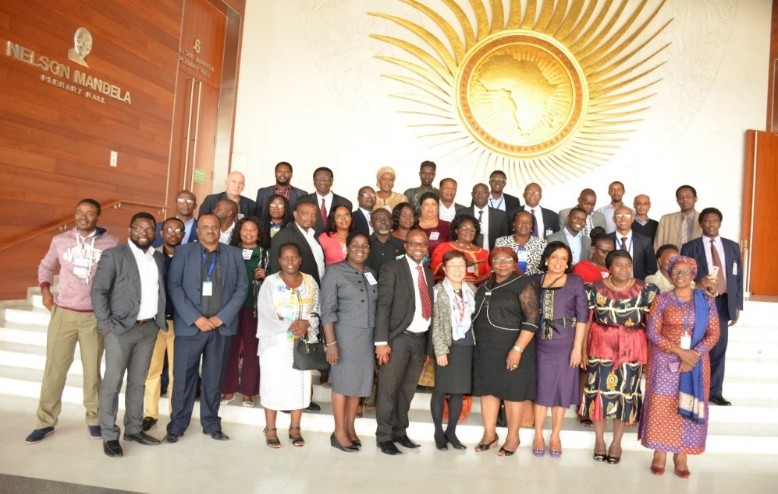Addis Ababa, December 10 2018 – The Department of Human Resources, Science and Technology organized the Launch of the CESA Thematic Cluster on Curriculum in Addis Ababa, Ethiopia from 10th - 11th December 2018. The purpose of the meeting was to discuss the issues confronting education quality, relevance and responsiveness, as a necessary part of ensuring that Education contributes to achievement of Agenda 2063. The following Member States were present: Zimbabwe, Tanzania, Uganda, Sudan, South Africa, Senegal, Namibia, Mauritius, Malawi, Kenya, Ghana, Equatorial Guinea, Burundi.
A number of international and regional agencies were present, including UNESCO, UNESCO-IICBA, ADEA, FAWE, AfECN, Save the Children, AAU, AIMS, CAPA, CEMASTEA, AFTRA, VSO and ACDE.
The objectives of the Curriculum Cluster will include building capacity of AU Member States in curriculum materials development and evaluation; promoting experience sharing and joint curriculum research programmes as well as the exchange of research information among Member States Curriculum agencies.
The HRST Commissioner, H.E. Prof. Sarah Anyang Agbor in her opening remarks stated that it is important to consider the policy and technical infrastructure available for curriculum development and implementation processes, including the extent to which new technologies are infused in the process, content, pedagogies or andragogies. She urged that there should be focus on what are the emerging options and opportunities for adult literacy and public education for promoting information, technological and digital literacy in continuing education.
Dr. Ana Elisa Santana Afonso, UNESCO AU Liaison office Director reiterated the place of CESA as critical for the achievement of SDGs. She said that AU and UNESCO are working to strengthen partnership to ensure that member states wield strong institutions to address SDG4. “The right of education of every child can be realised if only it gains the necessary political support”, she said.
Dr. Grace Baguma, Chair of African Curriculum Association (ACA) recognised the tireless effort of the AU in making the launch of the curriculum cluster possible. She stressed that Africa should focus on what our children are learning, why they are learning and how they are learning.
Participants agreed that CESA Curriculum Cluster would need to address the following issues, among others:
• Take stock of existing regional and continental curriculum harmonization frameworks and build on them.
• Ensure that curriculum instills entrepreneurship and employability skills in youth to address the issue of unemployment in Africa.
• Establish the minimum standards for curriculum development, including mainstreaming gender in curriculum development and implementation
• Emphasise learner centered teaching and learning in order to unearth the creative and problem solving skills of children.
• Ensure reflection and consideration of the African society and context
• Ensure inclusive curriculum, tailored to special needs learners and persons with disabilities.
• Involve relevant agencies and institutions, including private sector, and the AU ACALAN that deals with matters of language
The meeting endorsed Terms of Reference for the Cluster and a draft joint Work Plan. Africa Curriculum Association (ACA) was endorsed as the Coordinator of the Cluster, to be chaired by the African Union Commission and Co-chaired by South Africa. Senegal will also be a member of the Cluster Coordination team.

